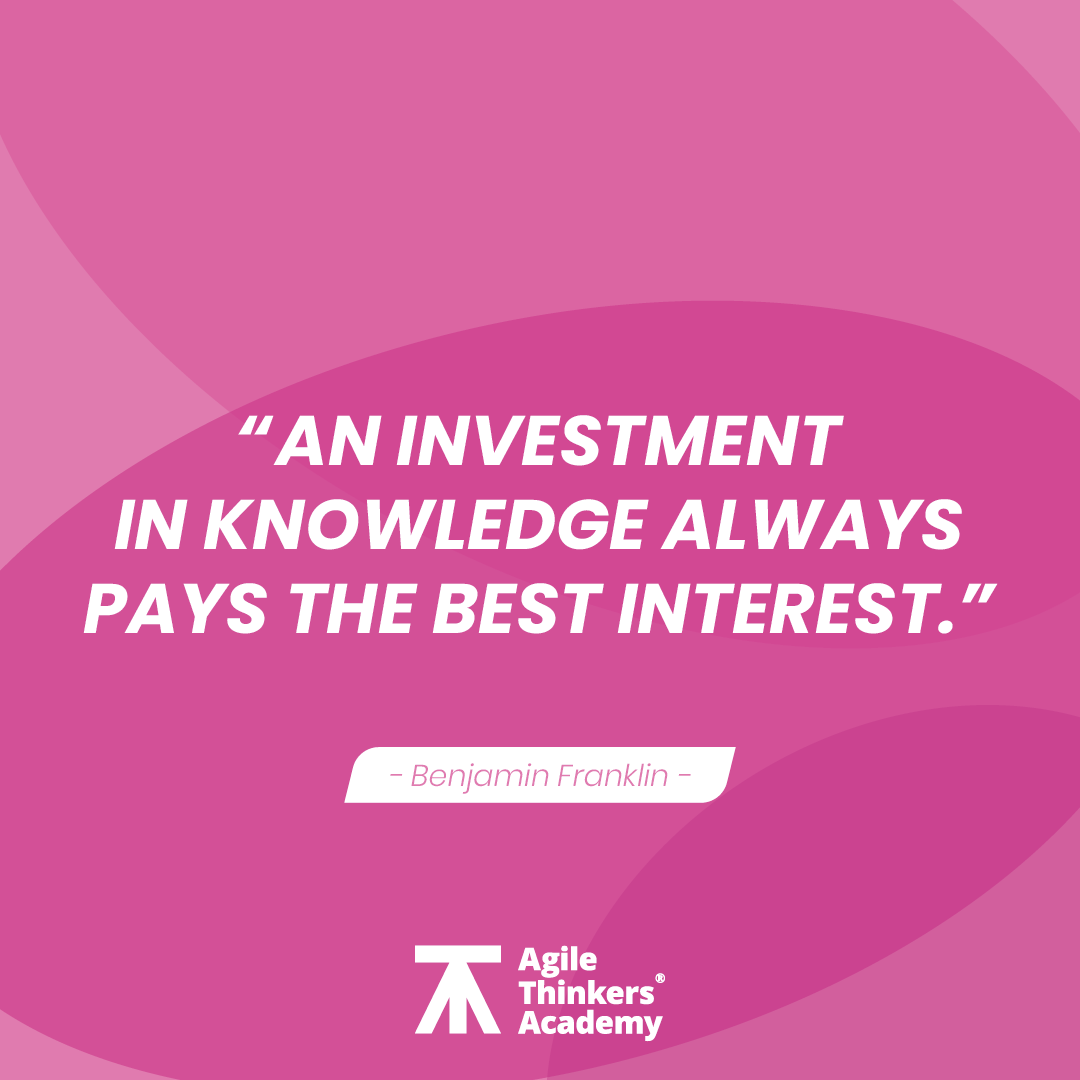The Age of Agile in the digital economy
Genuinely believe disruptions will happen more quickly and more often.
Frequently, we see legacy businesses giants beaten by little startups. Some research conclude that innovation is an inherent casualty of an enterprise size and their age.
Technology has changed the way innovation happens in every company! The next wave of disruption is coming from Artificial Intelligence (A.I.) making good predictions cheap or for free.
Did you know that Garmin's market capital by 2007 was $16bilion and after Google maps became available, they went to the $2bilion range? It took 12 long years to regain $14bilions.

Considering Moore’s law, we will see that (A.I.) will double their presence each year, while the effective cost to access it will reduce. Technology is becoming so cheap that we can have IoT almost everywhere and gathering data so A.I. forecast will be the next wave of disruption.
Agile fosters exponential organizations/economy, such way of thinking and working makes possible new applications and allows the creation of new industries at the cost of the older ones. Small Teams, Networks, and Customers, the three laws of Agile - Steve Denning.
Team strengths are their weakest members
Technology is obviously disrupting the status-quo in business, but it’s how we use data to provide predictive needs into new products and services, that will generate new markets, not because we bought technology, it’s what you do with technology and not the fact of having more tools and processes.
Critical to understanding the forces consigning so many leaders to obliviate their appreciation for some recent disruptions.
Consider some insights about the game change:
- Two kids in a garage can be building the next emergent technology
- Innovation in a business model triumphs over innovation in products, and platforms triumph over business models
- Adopting technology sooner don’t lead you to disruption, but those that don’t lead the disruptions become their casualties
- The power has shifted from seller to buyer; build loyalty via value and innovation – or game over
- Trust in individuals is more valuable than trust in organizations
- Command and control will not drive innovation, better ways of working and thinking on root-cause
- The collective, can solve problems – or create them, its people who make it happen
- Joining a startup rather than a large, established company is no longer as risky
- Innovation is a bottom-up process, not a top-down one
- Trust is a fine example. Public trust in systems such as Google maps or Uber, rests on social recognition can be effective, perhaps even more effective than legacy reputation systems.
Here is a 2min assessment just for your conscientization of what you can observe in tour organization:
So, what kills innovation in large legacy companies and prevents them from generating new lines of business?
From the book Lead and Disrupt, Stanford University’s Charles O’Reilly and Harvard Mike Tushman, the hypothesis on what makes large organizations so unable to embrace change and risk, is what they call from their observations the “Eight Deadly Sins of Stasis”:
- Unwillingness to listen
- Lack of patience
- Lack of distance
- Lack of resources (not people)
- Wrong people and wrong role (here are people)
- Lack of accountability
- Inappropriate culture
- Lack of political support

Innovation is sexy and fun. But too many legacy companies view innovation goals as pet projects rather than serious initiatives. Poisonous internal politics, inconsistently applied or unclear rules, and paralysis due to fear will block any business progress. Enabling innovation requires resources (not people), people, patience, distance, and a willingness to lead. Corporate budgets are political allocations as hotly contested as government budgets are. The Cisco example demonstrates this indirectly because so many executives were busy trying to sponsor and mentor so many different innovation efforts, all of them suffered a collective lack of political support. IT was a tragedy of the innovation commons, but that brought us Zoom!
Too far is as bad as too close
Recalibrating all these settings on a constant basis to ensure an organization maintains the right balance poses a significant management challenge. Bring authentic and unique advisors to ask questions and challenge the status quo to keep the momentum going. Having consultants that are “more-of-the-same", will not bring innovation but rather the same strategies, products, projects, and services as your competitors.
DON’T BUY
"ONE MORE COURSE"
Why you’re doing what you’re doing?
The days of rigid work hierarchies are gone. Workers, for their part, hate hierarchies, and so do most CEO’s. Smart CEO’s understand that enforced hierarchies separate them from what is really going on in the organization, often to their detriment or peril, and they know that they’re more effective in helping, supporting, and partnering than merely directing from on high. Management in the 21st century are coaches, not bosses. How will they learn those new skills if they have all their educational system based on the last 200 years of management and not on the last 20 years of new ways of working and thinking?
The good news is any company can improve by making the right changes, embracing new ways of working from those that practice and work as a team. Get suspicious to work with those who don't practice what they preach. By the way, if you're in Portugal buy from Portuguese companies and support our economy, our jobs, our companies, act with more ambition, and make your dreams come true!
Hugo Lourenço - The Agile Thinker®
Agile Thinkers Academies: https://agilethinkers.academy
Disclaimer: The opinions, ideas, and concepts here described or referred are my own responsibility and are not related or representative of any work or professional relation actual or before. If some of my experiences and or thinkings resonates with you that's awesome but, if not, that's ok too!

Hugo Lourenço
Hugo Lourenço is the founder of Experience Agile® and DevOps Forum, Agile Human Factors ®, World Agility Forum ®, Agile21® - Improving through people, and Agile Thinkers Academy ®. Hugo is an Entrepreneur in several businesses and its main focus is to understand how companies are dealing with better ways of working and how to improve their business outcomes for their employees and customers.
Hugo is motivated by his values and getting his opinion recognized, perfectionist and creative as well a strong believer in a better outcome from people’s work, although he has a strong need for personal (people) trust/honest/transparent relationships and also doesn’t expect less than perfection from others too. Hugo was a marine and he is mission-oriented, if your business, department, or team is in danger or needs to be rescued, this is the right mission for Hugo and his international team.
The experience of working closely with the leaders of many of the brands that have already started this “Enterprise Agility” process outside Portugal, has made it clear that the company’s to get ready for an “unpredictable future” should seek to rationalize the portfolio of legacy products, create high-performance teaming, understand why they do what they do, and their impact on the new operating model. Hugo team will guide you to organizational design & a new way of working, and that will emerge psychological safety, emergent leadership, and new business models through sustainable processes.
He collaborates as a guest lecturer in some national and international business schools has a presence in the North American, and European markets.
Skills: Cynefin, Product Management, Project Management, DevOps Trainer, LeanKanban Trainer, Coach, Scrum Professional and trainer, High-Performance Teaming, Emergent Leadership, Design Thinking, Human Factors, Risk Manager, IT Governance and Service Manager.
Expertise in Business Areas: Defense, Healthcare, IT, Telecom, Bank and Insurance, Utilities.
Some of his interests are:
Motorcycle, traveling, reading, surf paddling, skiing, bicycle, cinema, theater, orchestra, museems.